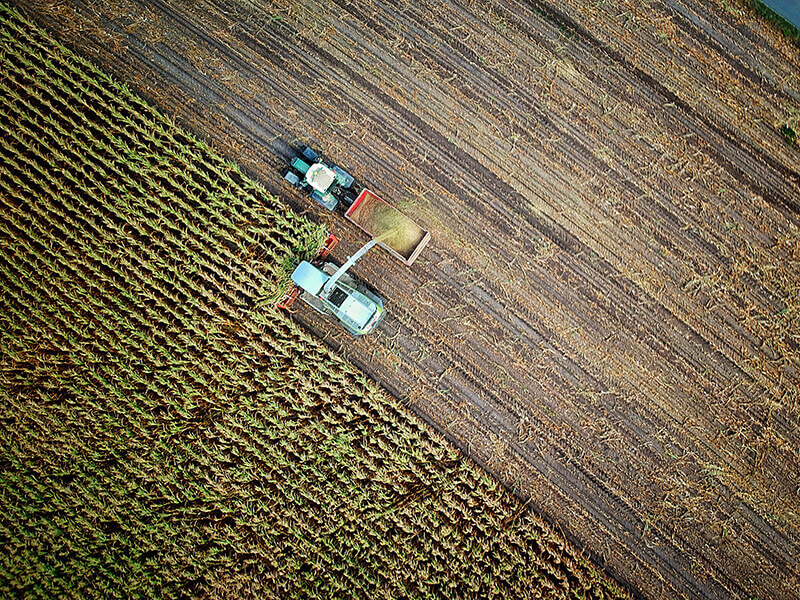April 29, 2020
Aid package for farmers has parallels to Great Depression, says Purdue historian

A recent stimulus package for farmers has parallels to the Agricultural Adjustment Act in 1933. (Photo by Unsplash)
WHAT: The Coronavirus Food Assistance Program will provide $16 million in direct payments to farm families and $3 billion to purchase fresh produce, dairy and meat. Farmers have been forced to destroy their milk, eggs and crops due to disruptions in the food supply chain caused by COVID-19.
WHO: Historian Douglas Hurt, a professor in the College of Liberal Arts at Purdue University, focuses on the history of United States agriculture and has written several books on the Dust Bowl and Great Depression. Hurt says the recent stimulus package for farmers is similar to the Agricultural Adjustment Act in 1933, which also sent direct payments to farm families and set apart money to purchase surplus food from producers.
 Douglas Hurt (Courtesy photo)
Download image
Douglas Hurt (Courtesy photo)
Download image
QUOTE: “The parallels are very clear. In both cases, particularly in the 1930s, the federal government needed to get money to farm families quickly. The agricultural prices had really collapsed in 1932, there’s a problem of overproduction and farmers simply needed operating and living money. The federal government addressed this first in 1933 with the Agricultural Adjustment Act, which tried to do two things: to reduce surplus production of seven major commodities hoping that eventually prices would go up; and to pay farmers to make production cutbacks.”
MORE INFORMATION: Hurt is author of the books:
- “Documents of the Dust Bowl”
- “The Dust Bowl: An Agricultural and Social History”
- “The Big Empty: The Great Plains in the Twentieth Century”
About Purdue University
Purdue University is a top public research institution developing practical solutions to today’s toughest challenges. Ranked the No. 6 Most Innovative University in the United States by U.S. News & World Report, Purdue delivers world-changing research and out-of-this-world discovery. Committed to hands-on and online, real-world learning, Purdue offers a transformative education to all. Committed to affordability and accessibility, Purdue has frozen tuition and most fees at 2012-13 levels, enabling more students than ever to graduate debt-free. See how Purdue never stops in the persistent pursuit of the next giant leap at purdue.edu.
Writer: Joseph Paul, paul102@purdue.edu (working remotely but will provide immediate response)
Source: Douglas Hurt, doughurt@purdue.edu (available for phone and Zoom interviews)
Note to Journalists: An agriculture stock image and a photograph of the professor is available to journalists via Google Drive.

